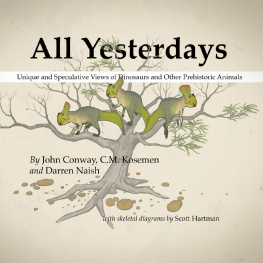Yesterdays People
Yesterdays People
LIFE IN CONTEMPORARY APPALACHIA
By Jack E. Weller
With a New Preface by the Author
THE UNIVERSITY PRESS OF KENTUCKY
Copyright 1965 by the University of Kentucky Press Copyright renewed 1993 by the University Press of Kentucky Preface copyright 1995 by the University Press of Kentucky
Scholarly publisher for the Commonwealth, serving Bellarmine University, Berea College, Centre College of Kentucky, Eastern Kentucky University, The Filson Historical Society, Georgetown College, Kentucky Historical Society, Kentucky State University, Morehead State University, Murray State University, Northern Kentucky University, Transylvania University, University of Kentucky, University of Louisville, and Western Kentucky University. All rights reserved.
Editorial and Sales Offices: The University Press of Kentucky 663 South Limestone Street, Lexington, Kentucky 40508-4008
02 03 04 05 06 6 5 4 3 2
The Library of Congress has cataloged the first printing of this title as follows:
Weller, Jack E.
Yesterdays People; life in contemporary Appalachia, by Jack E. Weller. [Lexington] University of Kentucky Press [1965]
xx, 163p. 23 cm.
Bibliographical footnotes.
1. Mountain whites (Southern States) 2. Appalachian RegionSocial conditions I. Title.
F210.W43917.50914365-27012
Library of Congress[8506r85]rev
(ISBN 0-8131-0109-3)
This book is printed on acid-free recycled paper meeting the requirements of the American National Standard for Permanence of Paper for Printed Library Materials.
Manufactured in the United States of America
Contents
, by Jack E. Weller
, by Rupert B. Vance
, by Harry M. Caudill
Preface, Thirty Years After
Thirty years ago Yesterdays People spoke to the life of the people in the Appalachian hills and valleys as well as to those interested in them. To my surprise, it became a best seller. Recently, at the request of the University Press of Kentucky, an update was suggested, noting changes in these later days. They have indeed been many.
Improved roads have made it easier for people to travel in and out of the area. In this way they have been able to take jobs in cities as well as continue their family relationships in the mountains. Those who remain within the mountains are also being changed by easier travel.
Coal mining, which formerly so devastated the land, is now making flat land available for housing and industry because of reclamation requirements. Coal trucks are required to be covered to prevent spillage along the highways. It is very gratifying to see such positive results from the legislative efforts to bring stripmining under control. Now, the new methods of mining coal preserve the land. Streams are clearer, and vegetation is growing on former stripped areas. Many dilapidated coal camps have been torn down, making way for new housing. More people own their own homes, and there is evidence of new pride in the appearance of mountain communities.
At the same time there are fewer jobs in the mines as giant machines have taken over. Many have had to move away to find work, greatly reducing the population. School children are now transported long distances to consolidated schools instead of using small, inadequate local schools.
In a real sense, then, the Appalachian people are largely integrated into the American scene. As they have moved into the mainstream of society, they have brought with them many lovely attributestheir closeness and caring for family, the genuineness of their concern for their neighbors, and their willingness to share with others even though they may be poor themselves.
In a way it is sad to see the passing of a subculture that was unique. Yesterdays People. They have enriched us by their lives and their love. They are indeed now a part of the melting pot of our nation, and they have brought to us a significant part of themselves to add to the global village that is the United States.
Jack E. Weller
May 1995
An Introductory Note
I T is a clich, no doubt, but many a publisher hopes every time he opens his mail to pick up an unsolicited manuscript that actually rings a bell. It happens so seldom that some forget it can happen. When the Reverend Jack Weller, a mountain minister, sent his manuscript in to the University of Kentucky Press, it happened. This was my conviction, too, when I was given a chance to read this book in advance of publication. I am very glad to be offered the opportunity to introduce the work.
Some books are made of other mens books; other books come directly out of experience. These are often the best books, for they are made from mens lives. This book comes out of a ministers thirteen years as missionary to churches in the Southern Appalachians. Because he came as a missionary, Mr. Weller brought the objectivity of the stranger. Finally, he came to know these people better than they knew themselves. Intimate involvement in the social life of a people does not necessarily reveal the meaning of that life to a native who has no standard of comparison, but for Mr. Weller there was always a background of the other life, the outside world with which he could make comparison. There are no schedules here; nothing is coded; few respondents are listed; only hundreds of unmentioned interviews that this minister carried on with parishioners, neighbors, acquaintances over a span of many years. The beauty of this book is that the whole thing remains completely informal but rings completely true.
Each year the Council of the Southern Mountains is attended by delegates from Chicago, Cincinnati, Detroit, and points north. Why is this? Social work executives and heads of city welfare programs come south to this meeting in order to learn about the problems migrants from the southern mountains offer to our great cities. First, our cities had to learn how to live with foreign immigrants; then they were faced with the migration of Negroes from the agricultural South; finally they must adjust their programs to newcomers from the Southern Appalachians. It is my feeling that in Mr. Wellers little book they have been presented a key to the motivation the folkways the mores and the personality of these people.
The problems of the southern mountains have long been in and out of the public eye and now they are back again to stay. Practically all of the national denominations have supported missionary activities in the area and before the age of public schools many staffed and supported mountain academies. Health services were first taken to the mountains by the Frontier Nursing Service. These nurses rode horseback to deliver the babies of mountain mothers and were the first to bring maternal and child health services to these remote areas. Berea College remains a fine example of an institution especially adapted to mountain culture and needs.
Now the public agencies are stepping in and there is money in the budget for the Southern Appalachians. In 1961 President Kennedy signed the Area Redevelopment Act, a measure to help stranded rural and urban communities overcome chronic unemployment. The Cumberland plateau, practically all of West Virginias counties, and other regions of the Appalachians were designated as redevelopment areas under the new act. New programs are now in operation. In West Virginia, a group of remote counties, organized under the Combined Extension Services of the University of West Virginia, have embarked on a program of development proposed and guided by core committees from the most mountainous counties. Under a grant from the Kellogg Foundation, the University of Kentucky is carrying integrated extension services to the thirty counties of the Cum-berlands in an attempt to hasten redevelopment. The plan is to stimulate communities by these services, to inventory their needs and work toward alleviation.










